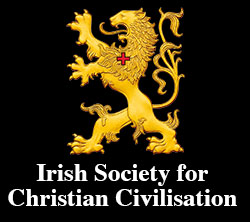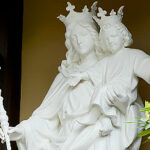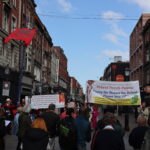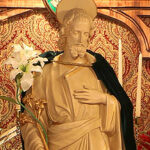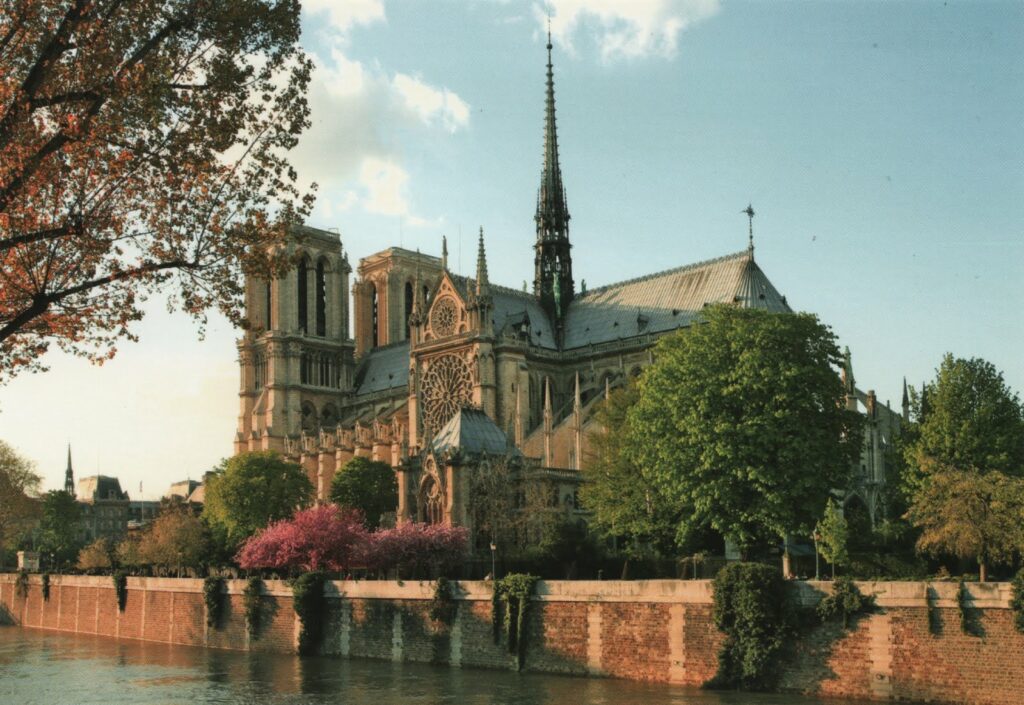
It would be false to think that the Church’s action upon men is merely individual and that She forms only persons, not peoples, cultures and civilisations.
In fact, God created man sociable, and He desires them to work for the sanctification of one another in society. That is why He created them receptive to influence. This can be said about the relations between individuals and between individuals and society. Our surroundings, laws and institutions exert an influence on us; they teach us.
To defy these surroundings, whose ideological action penetrates us, even by osmosis, takes high and strenuous virtue. Thus, the first Christians were no more admirable facing the wild animals of the Coliseum than when maintaining their Catholic spirit in a heathen society.
Thus, culture and civilisation exert a tremendous influence on souls — for their ruin when the culture and civilisation are heathen; for their edification and salvation when Christian. How then, can the Church fail to attempt to influence culture and civilisation? How can She remain satisfied with acting merely upon individual souls?
In fact, every soul influenced by the Church is a seed of that civilisation, which She actively and vigorously spreads. Virtue shines through, penetrates and thus spreads. By spreading, it tends to transform itself into a Catholic culture and civilisation.
As we have seen, the distinctive feature of the Church is to produce a Christian culture and civilisation, and to produce all Her fruits in a fully Catholic social atmosphere. A Catholic must long for a Christian civilisation just as a man imprisoned in a dungeon wants open air and a caged bird yearns after the infinite expanses of the sky.
This is our purpose, our great ideal. We move towards the Christian civilisation that may arise from the ruins of today’s world, as the civilisation of the Middle Ages was born from the ruins of the Roman world. We move towards the conquest of this ideal with the courage, the perseverance, the will to face and overcome all obstacles with which the crusaders marched towards Jerusalem. If our forebears were capable of dying to reconquer the Sepulchre of Christ, how could we not want — we sons of the Church as they — to struggle and die to restore something that is of infinitely more worth than the most precious Sepulchre of the Saviour, that is, His reign over the souls and societies that He created and saved to love Him eternally?
Christus vincit! Christus regnat! Christus imperat!
This is an excerpt of an article that first appeared appeared in Catolicismo in January 1951
This year, it is more crucial than ever that we turn to prayer and intercession to increase devotion to Our Lady across our country. That’s why you’re invited to join us in the Three Hail Marys Pledge, a powerful devotion that can bring personal spiritual benefits and national transformation. By reciting three Hail Marys daily, you honour the Immaculate Heart of Mary and seek her intercession for the conversion of sinners, the salvation of souls and the restoration of Ireland’s Catholic Faith. This ancient devotion, revealed to Saint Mechtilde, promises spiritual benefits including protection from mortal sin and the assurance of a good death. Your daily prayers will contribute to an increase in devotion to Our Lady, the conversion of sinners and the moral renewal of our country. Let us commit to this powerful devotion and seek the guidance and protection of Our Lady.


